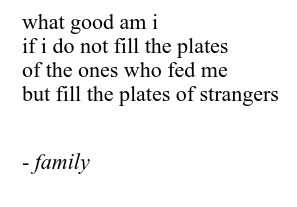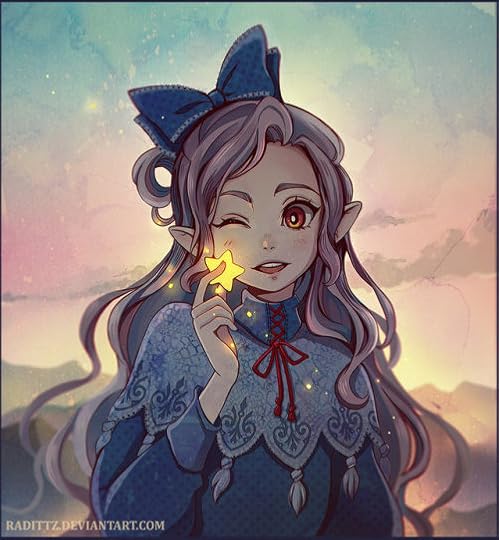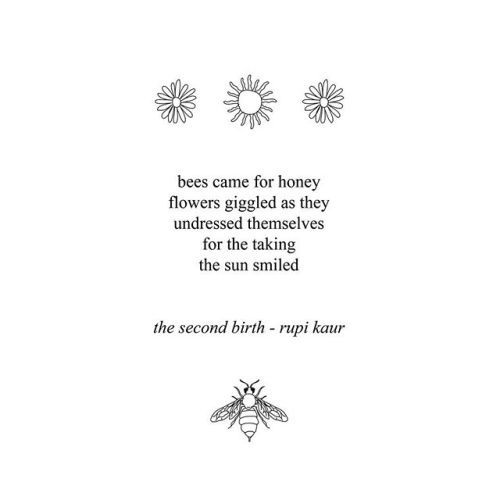Katherine Frances's Blog, page 87
January 23, 2018
–[x]
silverhawk:
when the song ur listening to helps you daydream the solution to a plot hole in ur ocs...
when the song ur listening to helps you daydream the solution to a plot hole in ur ocs story

Playlists for Writing
Listen on Spotify or Spotify Web Player
Music to write or study to! These playlists are works in progress and are continuously growing. Titled after like-themed action movie and game music, the playlists each have their own personality, and encourage different moods or activity levels. Most music is from soundtracks. The calmest playlists, Temple Ruins and Party Camp, are useful for getting into the writing or studying mood. This music is less distracting. Once your pace is set, or if you want to get in the mood to write an action scene, Boss Fight is the playlist for you. Tavern Nights, of course, is a fun-filled playlist, but it can be more distracting, and Field Music is right in the middle.
All playlists are available to follow on Spotify, and can also be accessed via the web player with a free Spotify account. Just click on the [listen] for the link. Please do not hesitate to suggest music/changes to me, either here or on Spotify.

Title: Temple Ruins
Mood: tense, eerie, dark
Volume: quiet, few musical swells
Action: creeping through a dark ruin
Instruments: minimal orchestral
Lyrics: few (non-English)
[listen]

Title: Party Camp
Mood: calm, mysterious, romantic
Volume: soft, somewhat dynamic
Action: resting after a long day traveling
Instruments: minimal orchestral
Lyrics: few (mostly non-English)
[listen]

Title: Field Music
Mood: cheerful, adventurous
Volume: low to medium, dynamic
Action: traveling with your companions
Instruments: orchestral
Lyrics: few (non-English)
[listen]

Title: Tavern Nights
Mood: cheerful as well as sombre
Volume: medium to high, dynamic
Action: eating and drinking with the locals
Instruments: mainly guitar and fiddle
Lyrics: yes (including English)
[listen]

Title: Boss Fight
Mood: angry, dangerous, scary
Volume: mainly loud, dynamic
Action: slaying demons and dragons
Instruments: full orchestral
Lyrics: few (non-English)
[listen]
"To whoever loves me next,
I’m sorry if I’m afraid of you
or if days of flirting turn to
radio..."
To whoever loves me next,
I’m sorry if I’m afraid of you
or if days of flirting turn to
radio silence, without warning.
I’m sorry if I make you say the words
over and over and over until I believe them.
(I’m sorry if I don’t believe them.)
I will probably spend more time
worrying about losing you than I spend
trying to keep you.
Trouble is,
every single time I’ve ever thought
something was too good to be true–
I’ve been right.
Understand,
I will know how to be vulnerable with you,
but I won’t know how not to regret it.
And I have no idea how deep we’ll be
into this relationship before I admit
I’ve never done this before.
Not really.
Not in any way that counts.
Before I admit that I know
how to put my body inside someone else’s
but not how to make it beautiful.
I probably won’t be easy to love.
Too many people loved me badly,
I’m not sure I know how
to do it right.
- Ashe Vernon
(via wnq-writers)
January 22, 2018
January 6, 2018
"Nothing
is invincible–
so when the darkness
comes whispering
to me that I am Nothing,
I will..."
is invincible–
so when the darkness
comes whispering
to me that I am Nothing,
I will reply:
If I am Nothing,
you cannot defeat me.”
- Invincible (via gracebabcockwrites)
I have a writing question, I often hear the advice “in order to keep the plot interesting imagine the worst thing that could happen to you or the ones you care about and do that to your character.” in varying forms. My question is: do I have to? Can the pl
That’s a great question! There are a lot of components to keeping the plot interesting, such as tension, conflict, and unexpected twists, but those elements don’t necessarily need to be driven by something that is personally tragic to you or others around you (though having the experience in what you write about is helpful if you’re new to writing). What I’d say is more important is the impact that situation might have on the characters themselves. These are the areas I’d look at first:
First, character development. You need strong characters that readers are invested in. Think about their goals, their beliefs, their backstory, and what’s potentially keeping them from reaching those goals. Characters will have moments of ups and downs, things going right and wrong. So while it’s a good thing to let them have those moments of joy and triumph, it’s equally important to balance them out with miserable moments. How they respond to a situation can say a lot about their character, and if you can create well-rounded characters that readers care about, you’ll have even more potential for keeping readers hooked from the start.
Second, look at conflict as it pertains to a character’s goals. I know it probably sounds like I’m spending a lot of time talking about character development even though your question is about plot, but the two are closely related and, in truth, they drive each other. For instance, if you have a character whose goal it is to travel the world, infinite subplots could be spun from that using conflict, especially if you couple that with world building and environmental struggles. Here’s one example: If your character is fulfilling their goal of traveling the world by boat, things can break, storms can cause a shipwreck, supplies could run out, the character could get severely wounded–tons of external conflicts can arise from the environment alone, which certainly always adds to the plot. And if you throw in internal conflicts to that, resulting in character growth and/or change, that will further the plot as well.
Lastly, I would definitely recommend giving your character trials and letting them make bad choices. Those are two things that make them both relatable and realistic, because without that, they’ll experience little growth. But you can use those trials to your advantage by turning them into a character flaw. If a character is resistant to facing the realities around them, avoiding dealing with tragedy as you mentioned above, but you use overcoming that as an area of focus in the plot, you suddenly have a character whose flaw becomes their burden, a roadblock to reaching their goals. Does that make sense?
There are also characters with flat arcs who can remain essentially the same but have a tremendous impact on those around them, which still furthers the plot. K.M. Weiland has a great guide for creating flat character arcs on her website the might be useful if you decide to go that route: https://www.helpingwritersbecomeauthors.com/flat-character-arc-1/.
Hope that helps, and happy writing!
-RMNS







